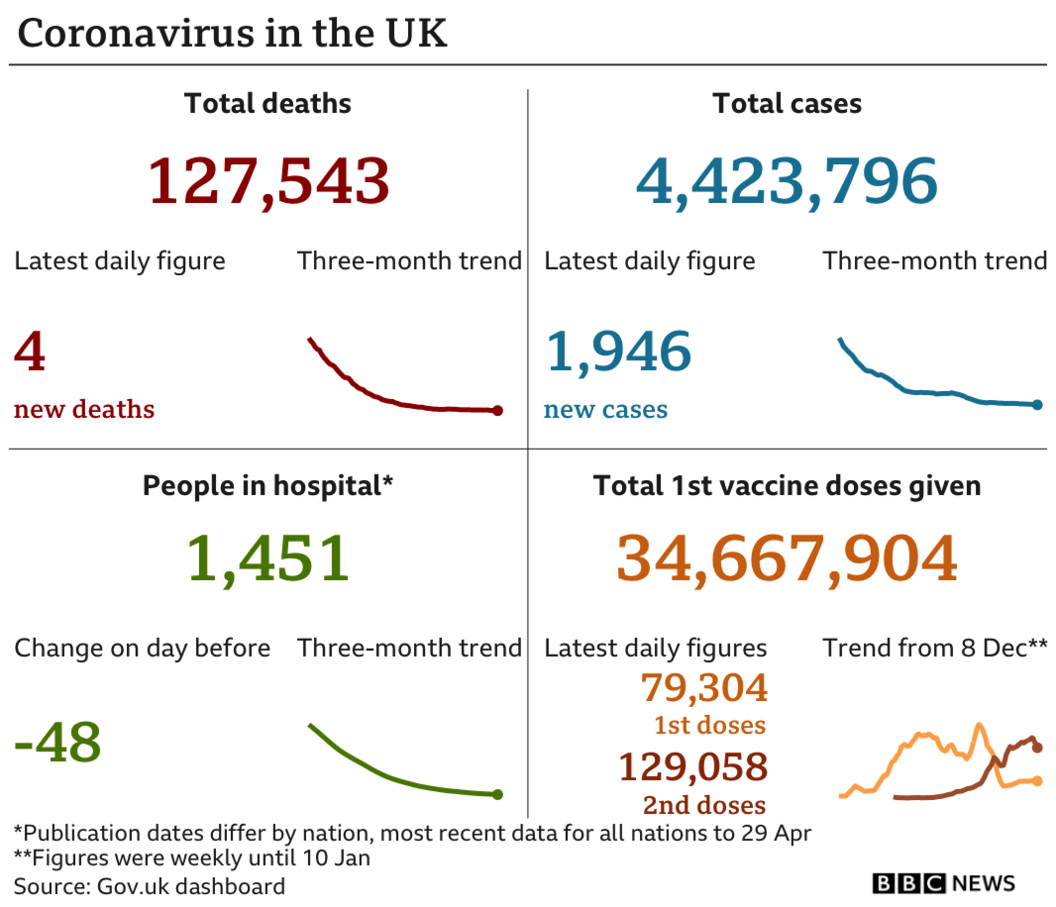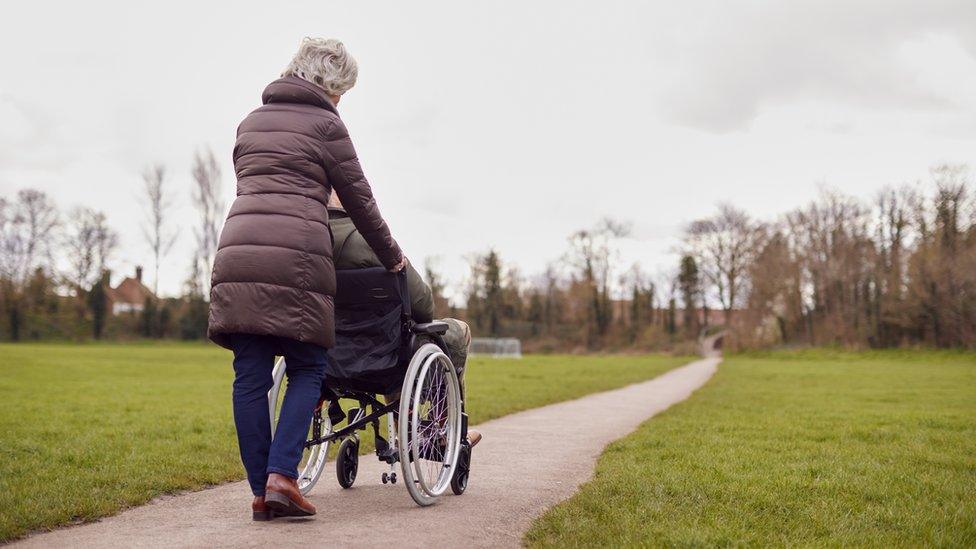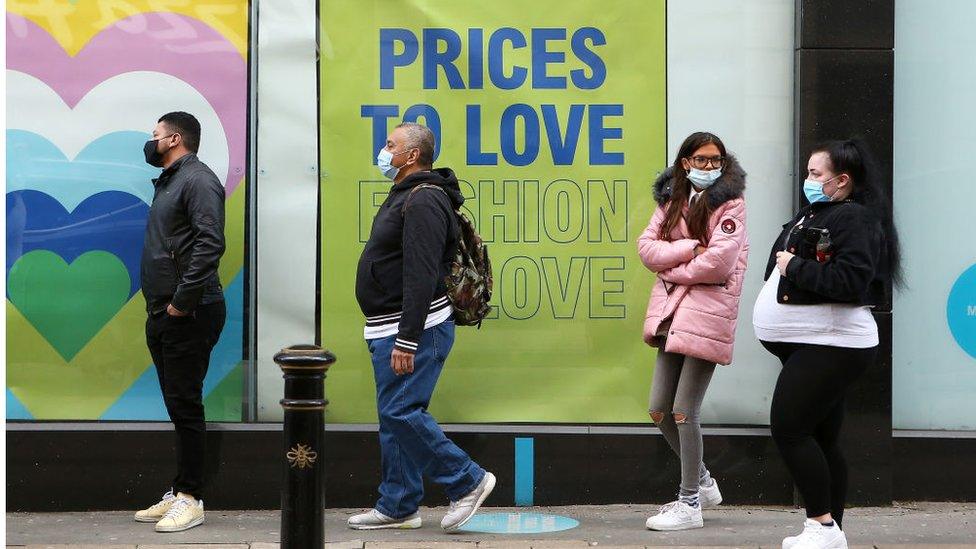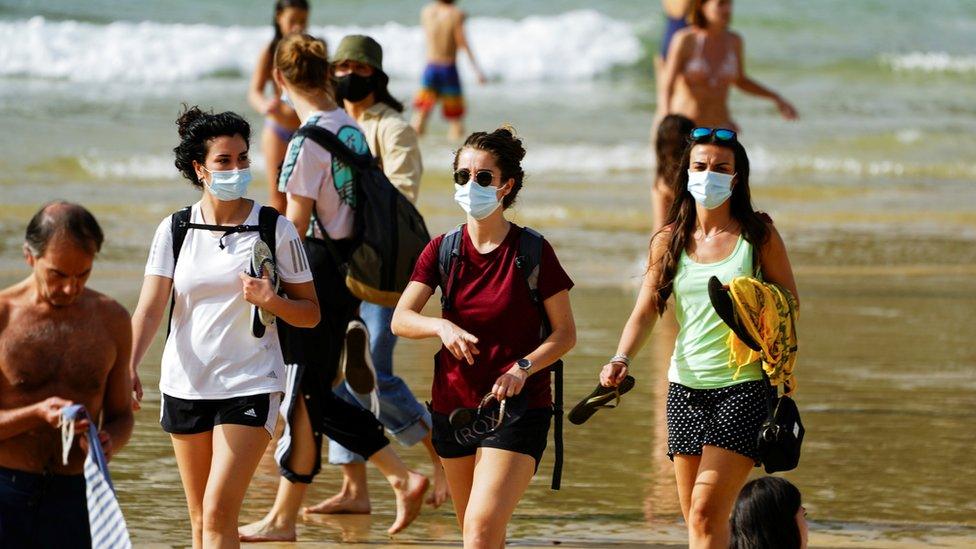Another Covid lockdown unlikely, says scientist
- Published

Pubs and other hospitality venues in England will be able to seat customers indoors from 17 May if the government meets its Covid targets
It is unlikely that there will be more lockdowns in the UK, the scientist whose modelling led to the first nationwide restrictions has said.
Prof Neil Ferguson told the BBC the UK is "likely to be on a steady course now out of this pandemic".
However, he said there could be a "roll back" of some freedoms if any new variants proved resistant to vaccines.
Ministers have said further lockdown easing will go ahead in England if the data supports it.
On Tuesday, the government's coronavirus dashboard, external recorded 1,946 new infections, as well as four deaths within 28 days of a positive test across the UK.
The recorded number of deaths is often lower immediately after weekends and bank holidays due to reporting lags.
More than 50 million Covid vaccinations have been given in the UK so far, with 34,667,904 first doses and 15,630,007 second doses.
Covid restrictions are expected to be further eased on 17 May in England, Scotland and Wales, subject to government approval. In Northern Ireland, more restrictions may be lifted on 24 May.
Prof Ferguson, an expert on the spread of infectious diseases who sits on the government's New and Emerging Respiratory Virus Threats Advisory Group (Nervtag), said that data on falling Covid cases, hospitalisations and deaths was encouraging.
He told BBC Health Editor Hugh Pym that while another lockdown "can't be completely ruled out", he has become increasingly "optimistic" over recent months.
"In the worst case scenario, if we have a new variant pop up which does manage to evade the vaccines, say late summer early autumn, there may be a need to roll back on some of these measures at least temporarily until we can boost people's immunity," he said.
"Do I think it's likely to happen? No, I don't. I think we are much more likely to be on a steady course now out of this pandemic, at least in this country."
Prof Ferguson said variants would need to be monitored "carefully", but the UK has gone from a "terrible situation" in January to a "remarkably good situation now".
Life would "feel a lot more normal" by early summer, he said, although questions remain over whether summer holidays abroad would be possible.
"We will have many fewer restrictions. Whether we have none at all it's too early to say," he added.

Prof Neil Ferguson's modelling led to the first lockdown in March 2020
On Monday, Prime Minister Boris Johnson suggested there could be some "opening up" of foreign travel for people in England on 17 May - but said "we have got to be very, very tough".
Foreign holidays are currently banned, but a traffic light system of rules will be introduced with countries classed as green, amber or red.
Further details are expected this week, after the government said it will "set out by early May" how countries will be categorised.
Mr Johnson also said there was a "good chance" the 1m plus social distancing rule could be scrapped on 21 June in England, when the nation reaches the final step of its roadmap out of lockdown.
He said the results of the vaccine rollout were "really starting to show up in the epidemiology" - but any change would depend on the data.

GLOBAL SPREAD: How many worldwide cases are there?
VACCINE: When will I get the jab?
NEW VARIANTS: How worried should we be?
QUARANTINE: Will I need to self-isolate in a hotel?

In other developments:
Care home residents in England can now go on low-risk trips - such as to relatives' gardens or a local park - without having to self-isolate for 14 days when they return
India's main opposition party has called for a full national lockdown, as the country passed more than 20 million Covid-19 infections
Odeon has become the latest cinema chain to say it will reopen on 17 May following months of lockdown closures
The Royal Albert Hall in London is to begin hosting full-capacity concerts again this summer


THE ULTIMATE CULT HEROES: Who are the players the streets will never forget?
COULD YOU RUN FOR 75 HOURS?: The toughest, weirdest race you've never heard of

Related topics
- Published4 May 2021

- Published3 May 2021

- Published3 May 2021
